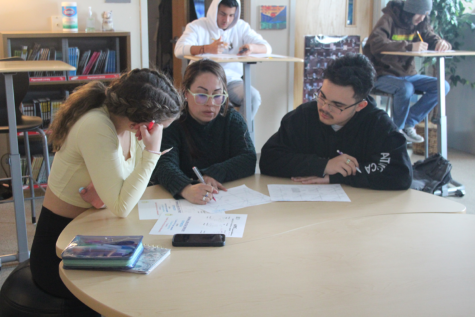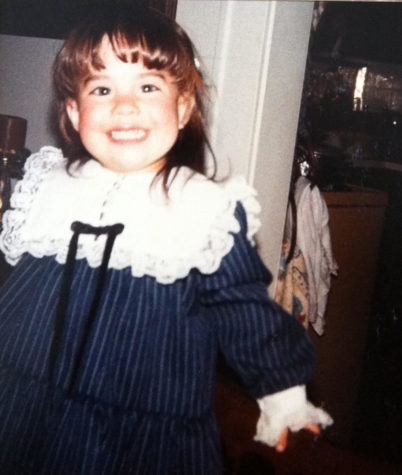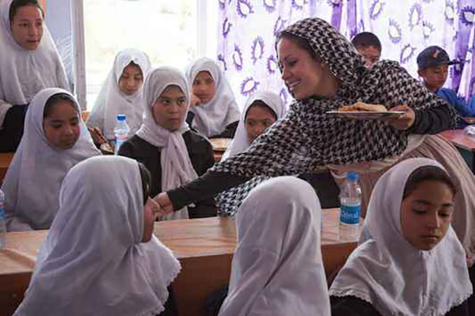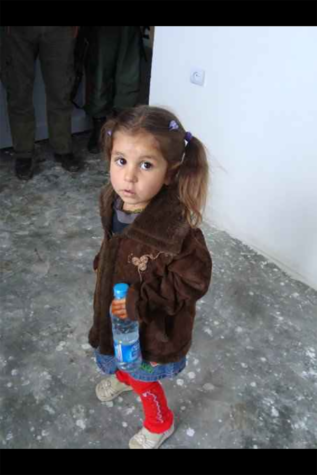Dare To Dignify
Katy Wood dignifies the voice of the under-served youth
May 7, 2023

Chapter 1: Young Katy
 When special education teacher and soccer coach Katy Wood was younger, everything seemed cool.
When special education teacher and soccer coach Katy Wood was younger, everything seemed cool.
As a two-year-old, she swung and climbed from monkey bar to monkey bar with reckless abandon.

“I was like a daredevil,” Wood said. “I was always willing to try stuff and things didn’t ever really scare me.”
This spirit of being daring, of taking chances, has led Wood to places her two-year-old self could never have imagined.
It all started with hard work in school.
“Education has always been important to me,” Wood said. “I was very much like, go home and get my homework done. I don’t think my parents ever had to say anything.”
Smart, bold, and wild, Wood had endless layers to her personality.
“I was also a little bit quiet,” Wood said. “I thought about things deeply and always wanted to participate, but it was hard for me to raise my hand.”
 All of Wood’s natural qualities translate into her work as a teacher.
All of Wood’s natural qualities translate into her work as a teacher.
“She’s a very comfortable person to talk to. I love having her as a teacher,” Kai Nelson ‘25 said.
Even before her time at Monarch, Wood has always been a listener. From the grassroot initiative to connecting many kids to education, she has moved from chapter to chapter of her life diligently. A savior to wayward girls. A makeshift mom. The founder of a school.
“Everybody is important. I had to do something that allows me to amplify people’s voices that don’t normally get the attention,” she said.
Chapter 2: Helping hand
Girls as young as 12 were put in the hands of Katy Wood. She owned a group house where beds were offered to girls at risk.
A group house is a small residential space that simultaneously provides support and therapy for those in need.
“I worked with different girls that had been in trouble with the law or their parents prostituted them out,” Wood said. “While they were in my house, a lot of them didn’t really have parents or parents who were a good fit.”

Girls were put in this house per judges order.
“They were from all over the state of Colorado and definitely traveled quite a while to come to the house.” Wood said.
She became the girls’ parent, and their friend.
“While we were there, I watched them 24/7 and looked over their cases, went to court with them, took care of their medicines and really just became like their family,” Wood said. “It was really important that they had people that lived and cared for them.”
Even in milestones in the girl’s lives, Wood was eager to help them in any way she could.
“This girl got asked to Homecoming and had never been shopping before, so we decided, ‘I’m going to take you shopping and get your nails done and get your hair done,’” Wood said.
But eventually the group house was put to an end.
Because of how the foster care system works, these girls were taken out of the group house and put back with their original guardians. Wood finds it hard to part with the girls.
“It’s really difficult because you fall in love with these people, they become your family,” Wood said.
Chapter 3: School founder
The children sweat under the hot sun in Afghanistan, working to make ends meet for their family.
Wood saw another problem to solve.
“Kids as young as three live on the streets and they work to sell pieces of gum, and that’s how they survive,” Wood said.

Wood visited Afghanistan with the purpose of donating water to students in need. After getting to know the children, Wood saw a greater impact in building them a school.
With the financial support from investors, she rendered this a reality.
“The kids said, ‘Katy before you get us water, can we have a school?’ So that started our school, and now they have wells, a playground, and a bunch of different things,” she said. “My kids are all the way from 3 to 20 years old and they go to school. The school is the only place they get one meal a day.”
Beyond a place of warmth and comfort, she says these students are elated to learn new things at the school.
“These girls are so thirsty for knowledge,” Wood said.
Despite the support, their struggles perpetuate. Within ten years of the school being operated, the people have undergone many challenges.
“We’ve been through three bombings, and we’ve closed several times,” Wood said. “I’ve had several kids pass away due to being bombed.”
It’s a continuous effort for Wood to assist these unfortunate children, grounded in a commitment to empower their education.
“They just want to know everything, they’re always just so willing to listen, try hard and they just suck in information and they’re always so happy to show you what they know,” she said.
Chapter 4: Motherly instincts
At the age of twenty four, Katy Wood was touring a school in Afghanistan, and all of a sudden, a 3-year-old little girl came up to Wood and started singing.
“Suddenly, she starts singing the A, B, Cs, and I’m like, what! She knows the ABCs.”

Nangina was the little girl’s name. She was 3. Wood instantly felt the bond between her and the little girl and soon became so close that she wanted to be a part of her life more.
“From then on, we were best friends and knew we had a good bond,” Wood said.
Wood met Nangina’s six other siblings and knew there was more to this family that Wood wanted to be a part of.
“Nangina’s mom and I started talking, and we became close, so it just happened that I became a part of their family,” Wood said. “They called me sozobaby, which means sozo meaning seek and save.”
Wood is now another mother figure of Nangina because of how much she has taken care of her.
“When I went to Afghanistan, they were like, ‘Nangina’s mom is here.’ Everybody just acts like I’m her second mom,” Wood said.
The next chapter

Katy Wood is more than a teacher. She steps into peoples lives when they need help most. What sets her apart from everyone else is how deeply she cares for others.
She choses not to watch. She takes action. She steps in. Just the way that she stepped into the lives of the young girls at her halfway house, and into Nangina life, she has stepped into the lives of Monarch students.
Her soccer players, her students, and people simply looking for comfort find themselves spending time in her classroom. By simply being herself she has found a way to make everyone feel like they belong. And that’s a hill she’ll die on.

